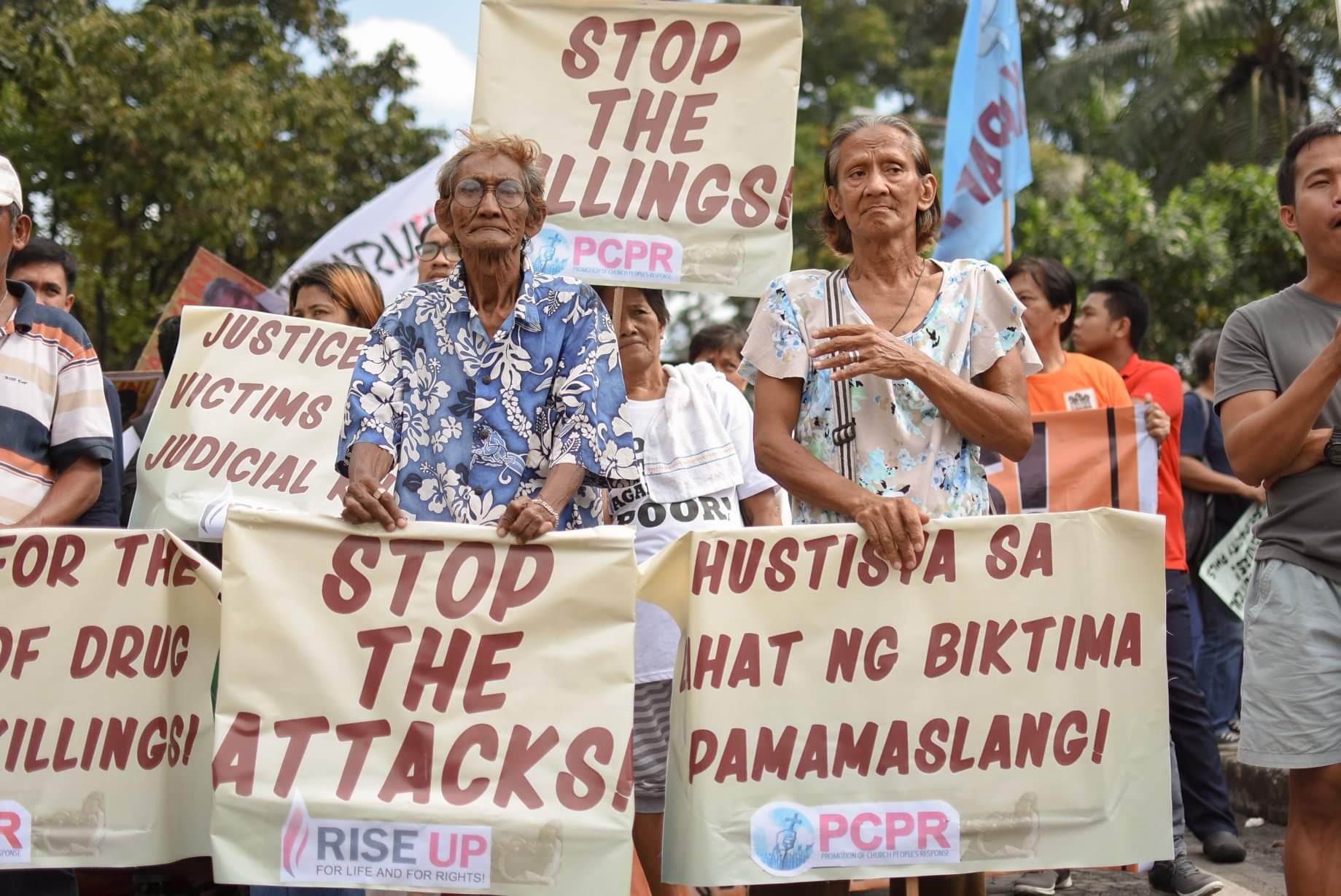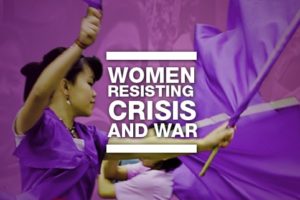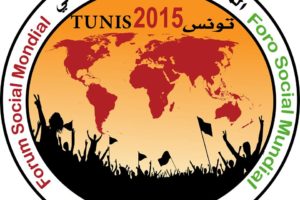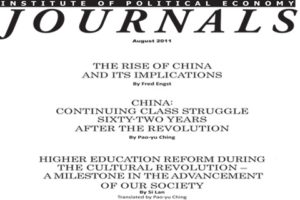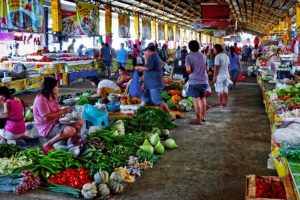Photo by Carlo Manalansan / Bulatlat.com
IBON International welcomes the OHCHR report as a move towards holding state perpetrators and other complicit actors accountable on their rights violations and crimes against the Filipino people under the current regime to obtain justice and reparations for all victims and families. The report is an outcome of the campaign efforts of peoples’ organisations and civil society for the conduct of a UN probe in the country. We urge all delegates in the UN Human Rights Council to endorse the recommendations.
The Office of the United Nations High Commissioner for Human Rights (UN OHCHR) released its report on the human rights situation in the Philippines early in the month of June,[i] in fulfilment of the Iceland-led UN Human Rights Council Resolution last year.[ii]
IBON International welcomes the OHCHR report as a move towards holding state perpetrators and other complicit actors accountable on their rights violations and crimes against the Filipino people under the current regime to obtain justice and reparations for all victims and families. The report is an outcome of the campaign efforts of peoples’ organisations and civil society for the conduct of a UN probe in the country.
The Iceland resolution requested the High Commissioner for Human Rights Michelle Bachelet to conduct an investigation and prepare a written report on the human rights situation in the country as international concern mounts over the brutal, false “drug war” that have killed tens of thousands of people, and the erosion of democratic and economic rights under the Duterte administration.
The release of the report coincides with the passage of the Anti-Terror Bill which has become controversial even in the international community for its vague definition of ‘terrorism’ that targets all who express criticism against the government including concerned citizens, human rights defenders and progressive organisations.
The OHCHR report forebodes against the passage of the Anti-Terror Bill, as it has cited similar so-called “national security” laws and policies as bases for abuse by state forces. This reinforces the peoples’ opposition of the Anti-Terror Bill which has been railroaded in congress, while the government’s COVID-19 responses fail to address people’s immediate health and economic needs.
The OHCHR report forebodes against the passage of the Anti-Terror Bill, as it has cited similar so-called “national security” laws and policies such as the Human Security Act of 2007, the Cyber Crime Protection Act, Executive Order 70 (EO 70) and Memorandum Order 32 (MO 32) as bases for abuse by state forces against citizens resulting in arbitrary and unjust arrests and killings with impunity. This reinforces the peoples’ opposition of the Anti-Terror Bill which has been railroaded in congress, while the government’s COVID-19 responses fail to address people’s immediate health and economic needs.
IBON International urges all delegates in the UN Human Rights Council (UNHRC) this 30 June in Geneva, Switzerland to endorse the recommendations. The OHCHR and the Human Rights Council should oversee the implementation of the recommendations to end state-sponsored killings and to protect the full range of people’s rights. They should also continue monitoring the human rights situation in the country by assigning a special rapporteur.
It is important that the OHCHR and UNHRC work together, not only with government actors, but with peoples’ organisations and civil society who have been engaged in earnest efforts in upholding peoples’ rights, to ensure the effective implementation of the recommendations. This is especially needed as there have been instances where governments obstructed efforts to conduct UN inquiries, and rejected their findings, such as in Eritrea,[iii] by Saudi Arabia and their allies in the war in Yemen,[iv] and by Israel in their occupation of Palestine.[v] Such is also the case in the Philippine as the government did not allow the commissioner to visit the country to conduct a thorough investigation, and the president’s spokesperson even denied the findings of the OHCHR report.[vi] In Sri Lanka, the government has even taken advantage of the pandemic to pardon war criminals, and has withdrawn from commitments in the UNHRC to provide accountability and reparations to victims of the Sri Lankan civil war.[vii]
Findings: state-sponsored killings, attacks against marginal sectors, human rights defenders and civil society, children not spared
The findings reveal thousands of killings with impunity and arbitrary detention among a host of rights violations committed under a “drug war” that targets the poor, and in line with “national security” campaigns that target people and community leaders who assert their economic rights and sovereignty against the private interests of transnational and multinational corporations and the local elite.
The report’s findings reveal thousands of killings with impunity and arbitrary detention among a host of rights violations committed under a “drug war” that targets the poor, and in line with “national security” campaigns that target people and community leaders who assert their economic rights and sovereignty against the private interests of transnational and multinational corporations and the local elite. The global trend of shrinking space for democratic participation is also evident in the criminalisation of peoples’ organisations and civil society in the country. The report says that most human rights concerns in the country have been “long-standing” but that they “have become more acute over the recent years.”
IBON International condemns the state’s rights violations, which have drastically escalated in the past five years, and the utter disregard for life especially of the poor and marginalised sectors. We share people’s grief and anger against an economic system and an elite-led state that deprives them of dignified living, and sanctions and cultivates a culture of impunity.
Based on government data, 8,663 people have been killed by the police and unidentified “vigilantes” —who are possibly backed by the police themselves and local government officials—in drug war operations, but the report estimates that actual figures could be tripled. Drug-related killings were usually justified by police’s claims that the victims were armed and resisted arrest, but OHCHR investigation found that the evidence against victims may have been falsified. The police repeatedly recovered guns with the same serial numbers as “evidence” in different cases. Children are not spared in police operations, with over 73 children victims of drug-related killings, including a five-month old infant.
Police and ‘vigilantes’ kill with impunity and are even encouraged by the rhetoric of high-ranking government officials including President Duterte. Only the killing of 17-year-old Kian Delos Santos has resulted in the conviction of police officers as footage which captured the torture and murder of the teenager provided strong evidence against the police, and also caused widespread outrage and heightened indignation against the “drug war” killings. The report says that the harmful rhetoric used by government officials could be considered as violation of the “prohibition against arbitrary deprivation of life in Article 6 of the International Covenant on Civil and Political Rights.”
State and paramilitary forces have also killed hundreds of human rights and environmental defenders, including legal professionals, journalists and trade unionists in “anti-insurgency” efforts under EO 70. Hundreds of HRDs have also been unjustly detained and have remained in prison amid appeals to release them on humanitarian grounds during the pandemic. Meanwhile civil society and non-government organisations, which are registered as legal and legitimate entities and have been supporting community-led development initiatives, are maliciously “red-tagged” or accused as communist sympathisers and are senselessly equated to being a ‘threat’ to national security. The police and military have disrupted their operations by raiding their offices.
Peasant and Indigenous Peoples’ communities have become primary targets of so-called anti-insurgency efforts. In Negros, Samar, and Bicol Region, MO 32 was implemented to deploy more police and military forces to fight “terrorism,” but its implementation has only resulted in killings and arbitrary detention of peasant community leaders and members of progressive organisations. International humanitarian law may have also been violated by the state forces such as in the conduct of aerial bombing operations in the said areas.
Peasant and indigenous leaders who have opposed corporate plunder, such as the OceanaGold operations in the province of Nueva Vizcaya, or else corporate-led development projects, such as the Kaliwa Dam project in the province of Quezon, were also harassed, if not killed by the military and paramilitary forces. An “emblematic case” was that of an indigenous Lumad leader in Mindanao who was killed by the military for refusing to renew authorisation for a coffee plantation.
Indigenous Lumad children and youth are systematically deprived of their right to education as over 54 of their schools were closed by the government in 2019. These schools were initiated and independently established by indigenous Lumad groups after years of government neglect of their needs for social services.
More rights violations during the pandemic
While the pandemic and the corresponding militarised response restricted people’s movement and limited their capacity to organise mass political actions, state forces that were deployed in major cities and rural communities had free rein to arbitrarily arrest people over “lockdown violations.” They have also violently dispersed small groups of people who were demanding food and assistance and even community-based relief operations and other initiatives.
The report shows that the government has only ramped up rights violations during the pandemic. Last April, OHCHR also identified the Philippines as among states that have implemented highly militarised responses that are counterproductive to addressing peoples’ needs during the COVID-19 pandemic and economic recession. The “community quarantine,” with restrictions partially lifted in June, was proved to be impotent in containing the spread of the disease, and only served to consolidate the president’s autocratic and militarist regime.
While the pandemic and the corresponding militarised response restricted people’s movement and limited their capacity to organise mass political actions, state forces that were deployed in major cities and rural communities had free rein to arbitrarily arrest people over “lockdown violations.” They have also violently dispersed small groups of people who were demanding food and assistance and even community-based relief operations and other initiatives.
The administration also ordered the shutdown of a major media company amid people’s need for credible and accessible information on the development of health guidelines regarding COVID-19. The move, reminiscent of former deposed dictator Marcos, is an assault against press freedom, and threatens independent reporting and free speech.
The Anti-Terror Bill, which was passed in congress by circumventing processes such as amendments and hearings, aims to stifle all forms of dissent. The bill provides for the penalising of accused “terrorists” with life imprisonment without parole, and authorises warrantless arrests and extended detention. Anti-terrorism laws in other countries have only facilitated state attacks against human and environmental rights defenders, and tend to be discriminatory against migrants, refugees and minority ethnic groups.
Hold states accountable, fulfil peoples’ just demands
States should fulfil their obligations to peoples under domestic and international human rights law, to protect their economic and democratic rights, and to hold perpetrators of rights violations accountable, including corporations, state forces, and government officials.
IBON International demands that the state fulfils its obligations to the people under domestic and international human rights law, to protect their economic and democratic rights, and to hold perpetrators of rights violations accountable, including corporations, state forces, and government officials. We fully support the report’s recommendations including immediate actions by the international community, and the application of international accountability measures especially if the Philippine government refuses to exact accountability from perpetrators and deliver justice to the victims. We anticipate the adoption of the recommendations in the upcoming UNHRC session
Other important recommendations of the report that align with people’s long-standing demands are: to put an end to the drug war and to deliver financial, legal, and psycho-social support to all families of victims of drug-related killings; to recognise the “drug problem” as a health and economic issue and consider human-rights based responses for drug offences; to rescind so-called “national security” laws and policies that have been used as basis for gross rights violations, and to disband paramilitary forces; to protect the rights of marginal sectors, and to facilitate the participation of peoples’ organisations and civil society in important governmental processes including responding to human rights concerns; and to uphold the Guiding Principles on Business and Human Rights in relation to development projects and business practices.
All efforts and resources today should be channeled to health and rights-based pandemic responses to help working peoples and marginalised sectors and communities.
We also reiterate that governments should focus all efforts and resources today to health and rights-based pandemic responses to help working peoples and marginalised sectors and communities. They should adhere to international calls to release elderly, political, and low-risk prisoners, and to end all forms of military aggression and comply with global ceasefire.
Ultimately, we recognise the campaign efforts of peoples’ organisations and civil society to pursue the OHCHR probe even with the Philippine government’s objections. The report would not have been completed if people’s organisations and CSOs have not conscientiously monitored and recorded the human rights situation in the country.
All over the world, peoples continue to organise massive actions while following health precautions to express their collective grievances and just demands. In the Philippines, several mass actions were held to oppose the Anti-Terror Bill, and against the state’s vicious attacks amid the pandemic, and its failure to respond to people’s immediate needs. Peoples’ anger against dysfunctional neoliberal states was not extinguished by fear of the pandemic. COVID-19 has exposed the hideousness of a system that exploits working peoples for the enrichment of a few, and thus further fuelled peoples’ rage.###
[i] https://www.ohchr.org/EN/NewsEvents/Pages/DisplayNews.aspx?NewsID=25924&LangID=E
[ii]https://icelandmonitor.mbl.is/news/politics_and_society/2019/07/12/iceland_s_resolution_regarding_philippines_approved/
[iii]http://allafrica.com/stories/201506100911.html
[iv] OHCHR and other UN inquiries
[v]https://www.cbsnews.com/news/israel-un-human-rights-council-gaza-protest-could-be-crimes-against-humanity/#:~:text=Israel%20rejected%20their%20report%20as,democracy%20in%20the%20Middle%20East.%22
[vi]https://www.facebook.com/HarryRoque/photos/a.321546771373161/1210928829101613/?type=3&theater
[vii]https://ijrcenter.org/2020/04/02/sri-lanka-pardons-war-criminal-rejects-human-rights-council-commitments/
